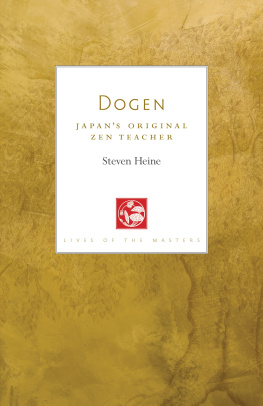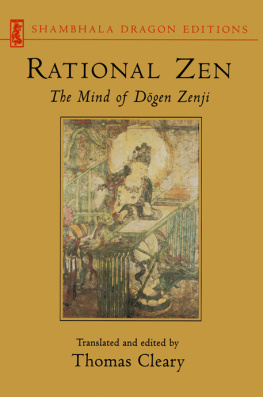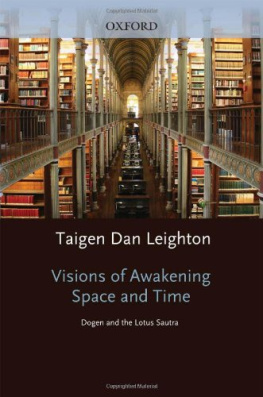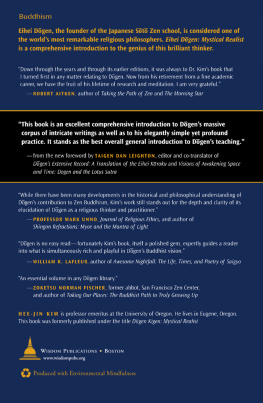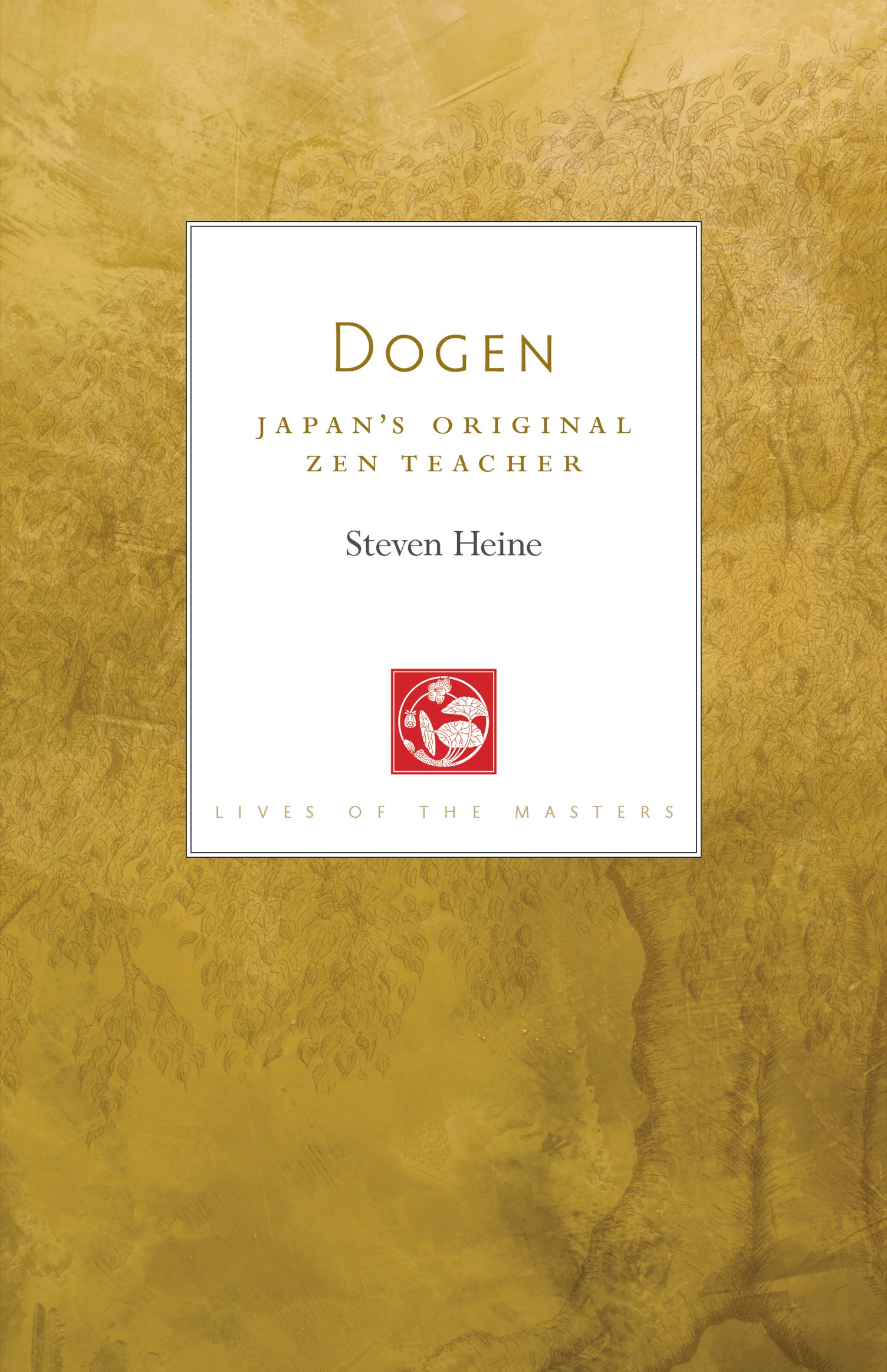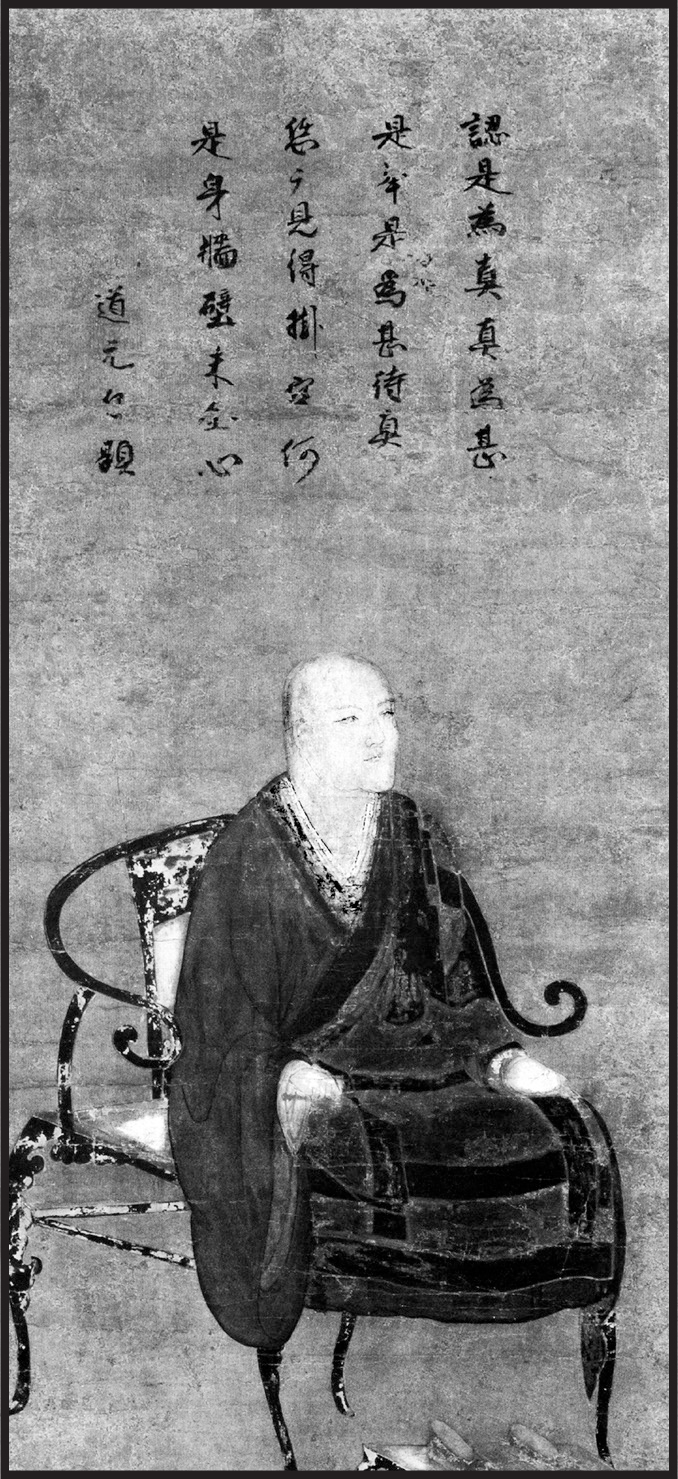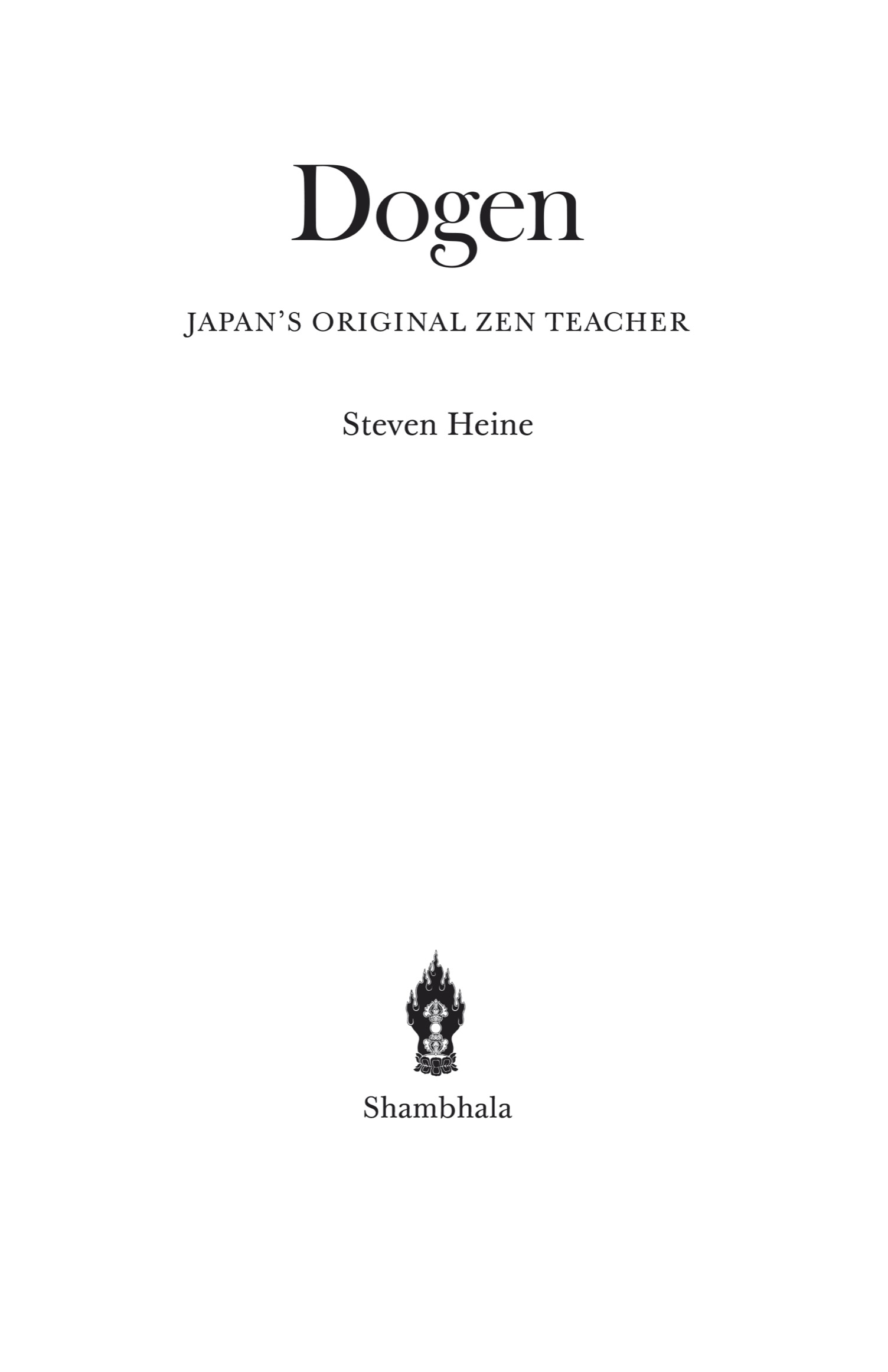Heines definitive research illuminates the life and creative process of a towering thinkera Zen monk who initiated an uncompromised monastic tradition in Japan almost eight hundred years ago and whose work begins to shed light on issues of our time worldwide.
An extraordinary and fascinating exploration of Zen master Eihei Dogens life and works done by scholar Steven Heine, who has unwrapped Dogens legacy bravely, richly, and skillfully.
Based on his lifetime of research, Heine offers a superb introduction to Dogens life and work. By exploring Dogens vast oeuvre, Heine illuminates Dogens fascinating thought on enlightenment and understanding of Buddhist practice. Dogen: Japans Original Zen Teacher is a highly recommended read for all Zen practitioners as well as scholars in Buddhist and Japanese studies.
If you consider this portrait to be real, then who am I, really?
But why put it there if not to give people a chance to know me?
When you look at this painting,
And think that what hangs in empty space embodies the real me,
Your mind is clearly not one with wall-gazing meditation.
Dogens poem is an inscribed verse
from volume 10 of his Extensive Record
Shambhala Publications, Inc.
2129 13th Street
Boulder, Colorado 80302
www.shambhala.com
2021 by Steven Heine
Cover art: Robert Fenwick May, Jr.
Cover design: Gopa & Ted2, Inc.
All rights reserved.
No part of this book may be reproduced in any form or by any means, electronic or mechanical, including photocopying, recording, or by any information storage and retrieval system, without permission in writing from the publisher.
FIRST EDITION
For more information please visit www.shambhala.com.
Shambhala Publications is distributed worldwide by Penguin Random House, Inc., and its subsidiaries.
LIBRARY OF CONGRESS CATALOGING-IN-PUBLICATION DATA
Names: Heine, Steven, 1950 author.
Title: Dogen: Japans original Zen teacher / Steven Heine.
Description: First edition. | Boulder, Colorado: Shambhala, [2021] | Series: Lives of the masters | Includes bibliographical references and index.
Identifiers: LCCN 2021002121 | ISBN 9781611809800 (trade paperback)
eISBN 9780834843851
Subjects: LCSH : Dgen, 12001253. | Dgen, 12001253Teachings. | Zen Buddhism. | Zen priestsJapanBiography.
Classification: LCC BQ 9449. D 657 H 455 2022 | DDC 294.3/927092 [ B ]dc23
LC record available at https://lccn.loc.gov/2021002121
a_prh_5.8.0_c0_r0
Contents
Series Introduction
Buddhist traditions are heir to some of the most creative thinkers in world history. The Lives of the Masters series offers lively and reliable introductions to the lives, works, and legacies of key Buddhist teachers, philosophers, contemplatives, and writers. Each volume in the Lives series tells the story of an innovator who embodied the ideals of Buddhism, crafted a dynamic living tradition during his or her lifetime, and bequeathed a vibrant legacy of knowledge and practice to future generations.
Lives books rely on primary sources in the original languages to describe the extraordinary achievements of Buddhist thinkers and illuminate these achievements by vividly setting them within their historical contexts. Each volume offers a concise yet comprehensive summary of the masters life and an account of how they came to hold a central place in Buddhist traditions. Each contribution also contains a broad selection of the masters writings.
This series makes it possible for all readers to imagine Buddhist masters as deeply creative and inspired people whose work was animated by the rich complexity of their time and place and how these inspiring figures continue to engage our quest for knowledge and understanding today.
Kurtis Schaeffer , series editor
Note on Translations
All translations of Dogens writings are my own based on consulting Kawamura Kodo, Kagamishima Genryu, Suzuki Kakuzen, and Kosaka Kiyu, eds., Dogens Complete Works [Dogen Zenji zenshu], 7 vols. (Tokyo: Shunjusha, 19881993). Some of the translations have been modified slightly, especially by eliminating the use of ellipses. In most instances, where relevant, one of the primary English translations of Dogens works is cited in the endnotes, but readers should be aware that the version used in this book may and usually does differ from those renderings, typically in minor details but sometimes significantly because of the varied ways Dogens complex writings can be interpreted. Also, for many of Dogens works, readers can find additional translations available.
Translations of other Buddhist or Zen sources are generally based on the following: Takakusu Junjiro and Watanabe Kaigyoku, eds., Complete Buddhist Canon [Taisho shinshu daizokyo], 100 vols. (Tokyo: Taisho issaikyo kankokai, 19241932), esp. vols. 47, 48, 51, 82; and Sotoshu Zensho Jokankokai, ed., Soto Sect Collection [Sotoshu zensho], 18 vols. (Tokyo: Soto shumucho, 19701973), esp. vols. 14.
Preface
Birds Singing and Boats Drifting: A Lifetime Studying Dogen
Dogens philosophy of Zen has long been with me.
I discover anew the teachings of Dogen nearly every day.
The core of my research during fifty years of teaching East Asian religions has involved reading and translating the multifaceted writings of master Dogen (12001253). As founder of the Soto sect, Dogen introduced to medieval Japan many different aspects of Zen Buddhist teaching that he learned and imported from China. I have attempted to decode and explain various prose and poetic works in light of his iconic personal story, which centers on a grave sense of doubt about the possibility of attaining enlightenment. He eventually overcame this doubt through attaining the transformative experience of casting off body-mind (shinjin datsuraku), or the shedding of all physical and mental impediments to authentic spiritual realization.
In this book, I analyze this fascinating narrative, which is expressed in Dogens masterwork, The Treasury of the True Dharma Eye (Shobogenzo, hereafter Treasury), and other writings, as connected to the cultural background of premodern Japanese society as well as the contemporary significance of his innovative mode of contemplative training. Some of the major topics I examine include the following: Dogens nondual philosophy of time and death in relation to the unity of the human and natural realms; his creative renderings of dozens of Zen koan cases based on interpreting various Chinese collections; his views regarding the practice of seated meditation (zazen) and clerical discipline in connection to social ethics; questions about the historicity and veracity of traditional accounts of Dogens travels and monastic activities; and the poetry he wrote in both Japanese and Chinese styles.

